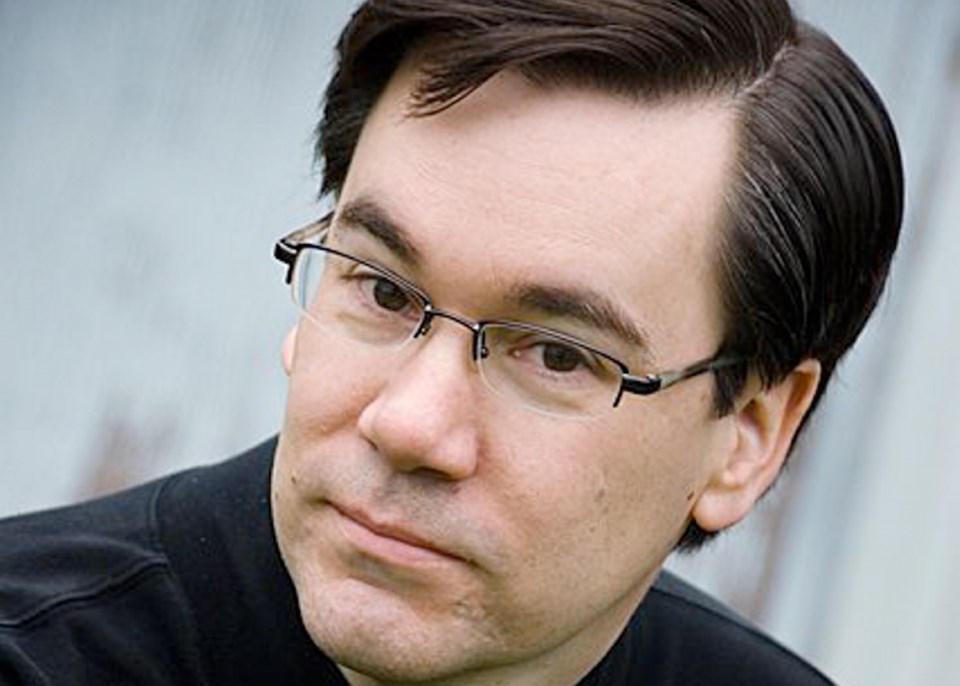What: Victoria Symphony (Classics Series): Mozart and Telemann
When/where: Sunday, 2:30 p.m., Farquhar Auditorium, University Centre, University of Victoria
Tickets: $35-$55. Call 250-721-8480 or 250-385-6515; online at tickets.uvic.ca; in person at the UVic Ticket Centre and the Victoria Symphony Box Office, Suite 610, 620 View St.
What: A Place to Listen: Gentle Traces — A Festival of Experimental Music
When/where: Mar. 22 and 23, 7 p.m.; Mar. 24, 2:30 p.m.; James Bay United Church (517 Michigan St.)
Tickets: $10 per concert
Georg Philipp Telemann died in 1767, age 86, and the 250th anniversary of his death has been much celebrated here.
Since the start of the 2016-17 season, wide-ranging selections from his enormous output have been performed by period-instrument and mainstream ensembles including the Victoria Baroque Players (the city’s most devoted Telemanniacs), the Pacific Baroque Orchestra, the Luchkow-Jarvis Duo, the Victoria Chamber Orchestra, the DieMahler Ensemble, the Victoria Cello Quartet and the St. Christopher Singers. Moreover, the whole 2017 Pacific Baroque Festival honoured the Telemann sestercentennial.
All of which has been welcome. Telemann, alas, seems always to languish in the shadow of the other big names in Baroque music, though he was widely considered to outrank them all during his lifetime. He remains noteworthy, not only for his extraordinary fertility, but for the high quality of his music, his originality and imagination, and the versatility that allowed him to command a huge range of genres, forms and styles.
The local “Telemann moment” is not over. This Sunday, the Victoria Symphony will pay belated homage to him in the latest concert of its Classics Series, conducted by its new music director, Christian Kluxen.
The program will showcase two members of the orchestra’s horn section: Alana Despins (the principal) and Michael Oswald. They will perform two Telemann concertos scored for a pair of horn soloists accompanied by strings and basso continuo, both from the first decades of the 18th century and both displaying the admixture of national styles typical of his cosmopolitan idiom. One appeared in his famous collection Musique de table, published in Hamburg in 1733.
The remainder of Sunday’s program comprises two symphonies by the young Mozart: No. 5 in B-flat Major, K. 22, and No. 29 in A Major, K. 201.
No. 5 was composed in The Hague in 1765, when Mozart was nine and in the midst of a 31Ú2-year European tour — the first of five tours the prodigy would undertake over the next decade. No. 29 was composed in his native Salzburg in 1774, after he returned from the last of those tours, now a veteran of 18. In the A-major symphony, as in some other works of his later teens, a fully mature and original creative voice is apparent, particularly in the music’s inspired, pervasive lyricism.
Beginning a week from today, A Place to Listen, the local new-music series, will celebrate its 50th concert. This is an extraordinary achievement for a series that was founded only in 2012 and is mostly devoted to repertoire that even some contemporary-music fans might consider rarefied.
As its co-founder, pianist and composer Daniel Brandes, has said: “Rather than a concert series, this is a listening series,” that explores “the relationships between sound and silence, audience and performer, performer and score,” by creating a “quiet place” where listeners can penetrate deeply into the music. Not surprisingly, the series focuses on compositions that create “radically quiet, intimate and immersive soundworlds.”
The series has frequently been a showcase for Wandelweiser, a loose, international collective of musicians and other artists that was founded in Berlin in 1992 and whose member composers specialize in a “minimal” idiom for which they coined a neat oxymoron — silent music.
In honour of its milestone, APTL is holding a three-day festival starting next Thursday, Mar. 22, and continuing over the following two days, in its usual venue, the appropriately intimate James Bay United Church.
All three concerts will feature the Dutch flutist and composer Antoine Beuger, who was one of Wandelweiser’s founders and is based in Duesseldorf, Germany. (In the summer of 2012, Brandes and his wife, APTL co-founder Laura Brandes, participated in an intensive mentoring program there with Beuger.)
In the evening concert on Fri. Mar. 23, Beuger will perform a program of unaccompanied flute music composed mostly by Wandelweiser members, after which he will give a talk.
The Thursday-evening and Saturday-matinée concerts will also showcase Beuger, as both performer and composer, along with APTL’s in-house ensemble, in programs that include the premières of new works by Brandes and another local composer, Kristy Farkas.

.png;w=120;h=80;mode=crop)

